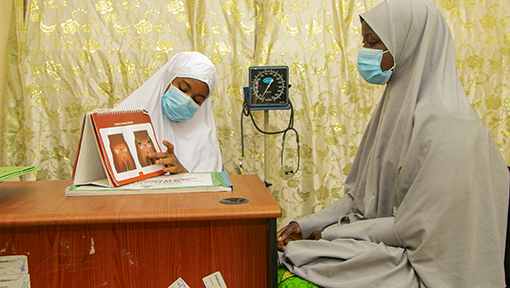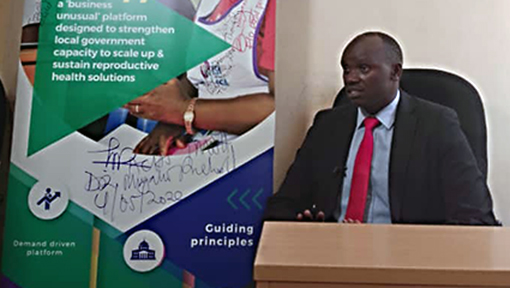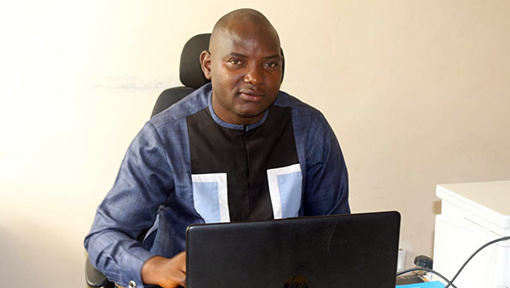Webinar Shows How Nigeria Is Improving Family Planning Service Delivery Despite Trying Times
Contributors: Nneoma Nonyelum Anieto, Deborah Hassan Samaila, Lekan Ajijola and Lisa Mwaikambo
 Adolescents and youth face many challenges across the globe. In Nigeria, youth are not only coping with the COVID-19 pandemic and a fear of unintended pregnancy, but now must also deal with civil unrest and the threat of bodily harm from a government crackdown on youth protesting police brutality. Even in these extremely trying times, Nigeria’s health care workers believe it is more important than ever to ensure access to quality health care services – including family planning services for women and youth – in their communities.
Adolescents and youth face many challenges across the globe. In Nigeria, youth are not only coping with the COVID-19 pandemic and a fear of unintended pregnancy, but now must also deal with civil unrest and the threat of bodily harm from a government crackdown on youth protesting police brutality. Even in these extremely trying times, Nigeria’s health care workers believe it is more important than ever to ensure access to quality health care services – including family planning services for women and youth – in their communities.
With this backdrop, TCI hosted a webinar Oct. 21, 2020, featuring Dr. Emem-Obong Jaja, Maternal, Neonatal and Child Health focal person at the Rivers State Primary Health Care Management Board, Rahila Telfim, Family Planning Coordinator at the Plateau State Primary Health Care Development Board, and Dr. Ikechukwu Opara, TCI’s service delivery technical lead for Abia State. The three presenters shared their experiences ensuring high quality family planning services through the implementation of TCI’s proven service delivery interventions and how these interventions have led to impacts beyond increased contraceptive users.
TCI employs a number of high-impact service delivery interventions, including facility-based in-reaches, 72-hour clinic makeover, performance improvement assessment/plan, FP supportive supervision and integrated supportive supervision, whole site orientation (WSO) and quality improvements teams (QITs), competency-based trainings and on-the-job trainings and commodity security interventions, like redistribution and coaching on logistics management. These approaches help strengthen adolescent and youth-friendly services too. Each presenter shared the high-impact interventions their state has been able to successfully and sustainably adopt.
All three presenters noted their appreciation for the cost-effectiveness of TCI interventions in generating demand and improving service uptake. They spoke about how facility-based in-reaches were a game changer in attracting new family planning acceptors with little effort and resources. In addition, they noted how WSO improved integrated service delivery and the efficiencies introduced by adopting supportive supervision and quality improvements teams. Adoption of these interventions has been driven by data from the performance improvement assessment and other state data reviews. As a result, the states have eagerly led implementation.
However, adoption and implementation of TCI proven interventions are not without challenges. Dr. Jaja shared a number of lessons learned from Rivers State:
- Coordination of partners is key because implementing partners come with multiple and sometimes conflicting family planning strategies.
- Coaching and demonstration of interventions is important since government staff can be reluctant to encourage adoption of strategies for fear of additional burden of work.
- To overcome inadequate domestic funding and release, identify and engage champions within the relevant ministries, departments and agencies who have insights into political, budgeting and finance processes. Also increase advocacy for policies that can enable the redistribution of financial resources to family planning interventions.
Other tips for adopting and institutionalizing the interventions are:
- Use data as evidence to engage decision-makers on the benefits of adoption as well as the negative consequences of inaction/non-adoption.
- Ensure the strategies are embedded into the state strategic health plans, work plans and guidelines.
- Intentionally integrate or link multiple health programs for the best use of available resources.
- Engage young people as an integral part of service delivery, as part of QITs for example, to improve access to contraceptive services for youth.
- Push for the adaptation and integration of proven service delivery interventions across all local government areas in quarterly Reproductive Health Coordinator (RHCs) meetings and other coordination platforms, such as technical working groups.
- Use on-the-job training and virtual platforms to strengthen capacity (as compared to the traditional classroom approach) for cost- effective and efficient replication of service delivery interventions across states.
In these unprecedented times, Dr. Jaja concluded that TCI is helping to “Make the work fun, easy and exciting!”
For more information, see the full recording below.






